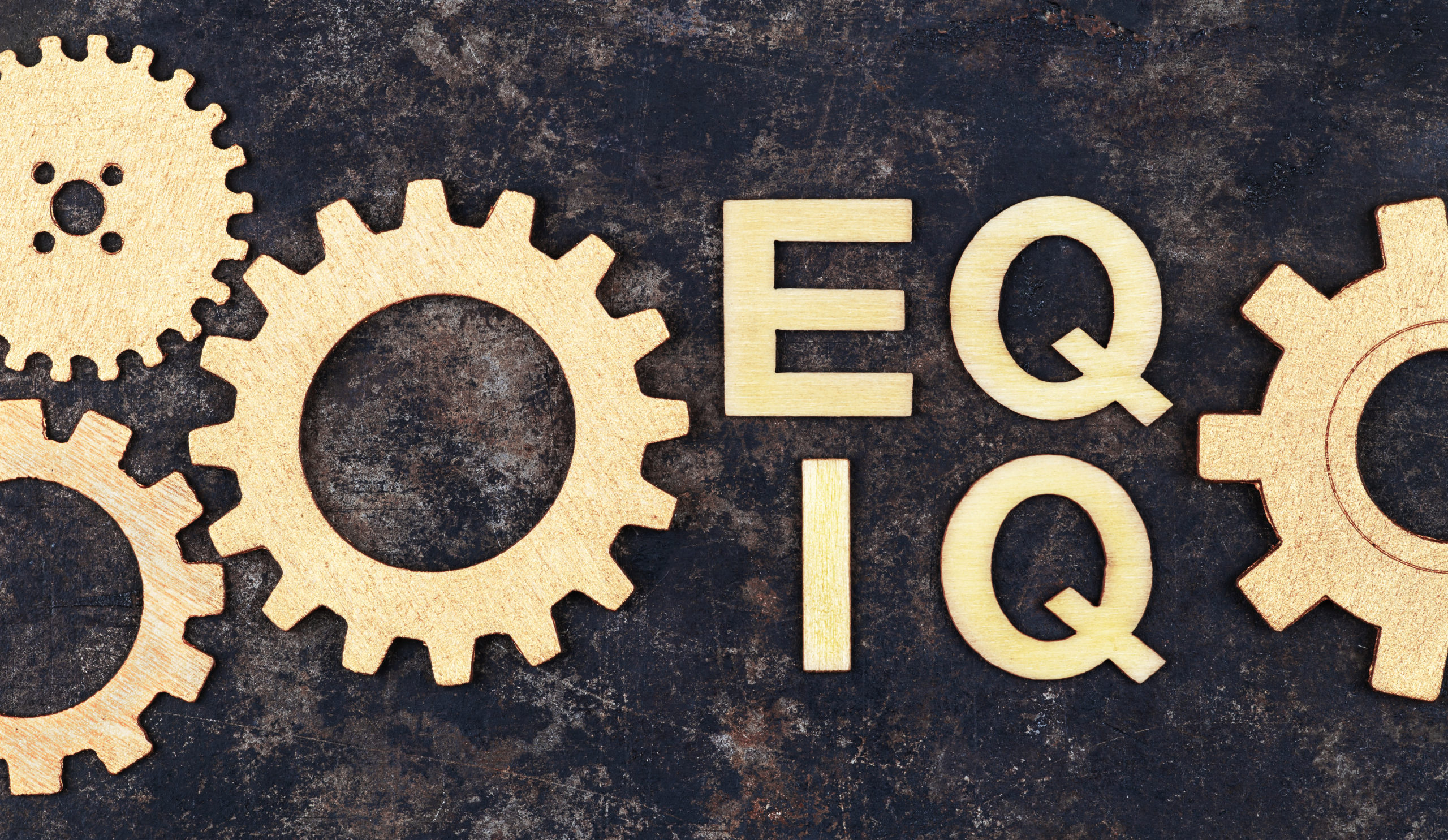The Preamble: Intelligence is Not Enough
Imagine a leader endowed with staggering analytical abilities, a human calculator capable of making split-second decisions based on data alone. Impressive, right? Now, picture that same leader struggling to inspire their team, incapable of navigating the nuanced corridors of human emotion and motivation. The cracks in the façade start to appear. This is where Emotional Intelligence or Emotional Quotient (EQ) steps into the spotlight, challenging the conventional wisdom that high Intelligence Quotient (IQ) alone makes a great leader.
The Heart of the Matter: What is EQ?
EQ encompasses a range of competencies that relate to how we manage ourselves and interact with others. It’s the intuitive capacity to read the room, understand one’s own feelings and those of others, and act in a way that is both empathetic and constructive.
🌱 Seed of Thought:
While IQ might get you through the door, it’s your EQ that will help you climb the corporate ladder and more importantly, resonate with your team.
EQ: The Unseen Captain of the Ship
Why is EQ such a critical skill set for leaders? It’s simple. While IQ might steer the ship through calm waters, EQ navigates the storm. Emotional intelligence aids in:
- Conflict Resolution
- Decision-making
- Stress Management
- Communication
💡 Light Bulb Moment:
IQ may give you analytical skills, but EQ equips you with relational skills, which are indispensable in any leadership role.
The Power of Empathy: Understanding Before Being Understood
Empathy isn’t just about being a nice person; it’s a robust business tool. A leader with high empathy can delve into team dynamics more effectively and defuse tensions before they escalate into serious issues.
🎯 Target Practice:
Rather than jumping to solutions, practice active listening during team discussions to fully grasp underlying issues.
Managing Emotions: The Unseen Strategic Play
While IQ provides you with a variety of strategies to tackle a project, EQ enables you to choose the right strategy that harmonizes with your team’s emotional state. A high EQ leader knows when to push for results and when to offer emotional support.
🎭 Mask Off:
Encourage a culture where it’s okay to show vulnerability, to say “I don’t know,” or to ask for help. This will make you more relatable as a leader.
The Social Architect: Building Emotional Bonds
High EQ leaders don’t just create followers; they create other leaders. They foster emotional bonds that go beyond professional requirement and tap into a sense of shared purpose and camaraderie.
🌉 Bridge Building:
Initiate regular one-on-one catch-ups with team members to discuss not just work, but also life aspirations, personal challenges, and self-improvement goals.
The Final Word: Emotional Intelligence is Not a Soft Skill; It’s a Core Skill
In the fast-paced world of metrics, KPIs, and bottom lines, EQ often gets relegated to the realm of ‘soft skills’. But, as we’ve established, EQ has a tangible impact on leadership effectiveness. It’s not a soft skill; it’s a core skill—one that can be honed and developed just like any other.
🌟 The North Star:
Consider incorporating EQ training and assessments into your organization’s leadership development programs.
The Closing Overture
While IQ tests have been the traditional measure of intelligence, they fall woefully short in capturing the full spectrum of human capability. Emotional Intelligence, or EQ, presents a more rounded view of human potential, especially in leadership roles. For leaders looking to elevate their influence and effectiveness, the takeaway is crystal clear: it’s not just about how smart you are, but also about how well you manage and understand emotions—both your own and those of others. After all, leadership is less about leading numbers and more about leading people. And people are, at their core, emotional beings.

Did You Enjoy This Article?
Join thousands of other smart business owners like yourself & get our Proffittable Times newsletter.
It's filled with actionable content you can apply immediately.
Sign up now to get started!
– Coach Nancy










